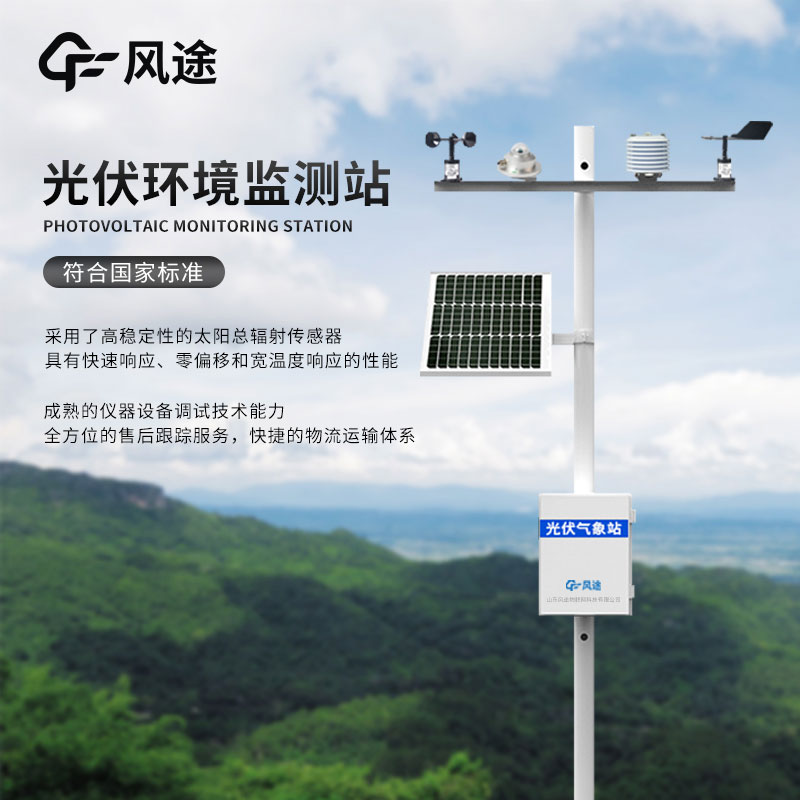Meteorological environment monitoring equipment supplier
Insist on doing high-precision customer favorite technology products
Because the photovoltaic power system is susceptible to the random influence of weather changes, the output power fluctuation is significant, which makes the power supply of photovoltaic power stations there is a strong uncertainty. The high uncertainty is easy to cause the chaos of power dispatching and reduce the reliability and security of power dispatching. Therefore, the accurate prediction of short-term meteorological factors of the photovoltaic power system can directly affect the formulation of the optimal hour plan of the solar cell bank and the grid-connected scheduling strategy, which is also the key basis for the operation and maintenance of the photovoltaic power generation system. That's why photovoltaic weather stations are needed to forecast the weather.
There are many meteorological factors that affect photovoltaic power generation, such as solar irradiance, temperature and humidity. Solar irradiance has the greatest influence on photovoltaic power generation, but its change has obvious periodicity.
The biggest feature of photovoltaic weather station products is a high degree of integration, which can be customized according to needs and viewed on the cloud platform, which is convenient for users to use. In addition, it also has the function of automatic tracking solar radiometer, the biggest feature of the device is automatic tracking measurement, can automatically measure the total solar radiation, direct radiation and scattered radiation, to achieve one-time installation and rapid use and other characteristics.
The meteorological sensor of photovoltaic power station monitoring system plays a vital role, and the accurate meteorological measurement data is very important to track, evaluate and control the performance parameters of photovoltaic power station. Therefore, the correct installation of sufficient weather sensors and their related devices, and the smooth collection of relevant data suitable for photovoltaic power stations, can ensure that unavoidable errors do not cause incorrect assumptions and results. Only the proper use of redundant sensors, sampling frequency, data cleaning and calibration combined with the characteristics of the power station can obtain the best performance analysis results.
